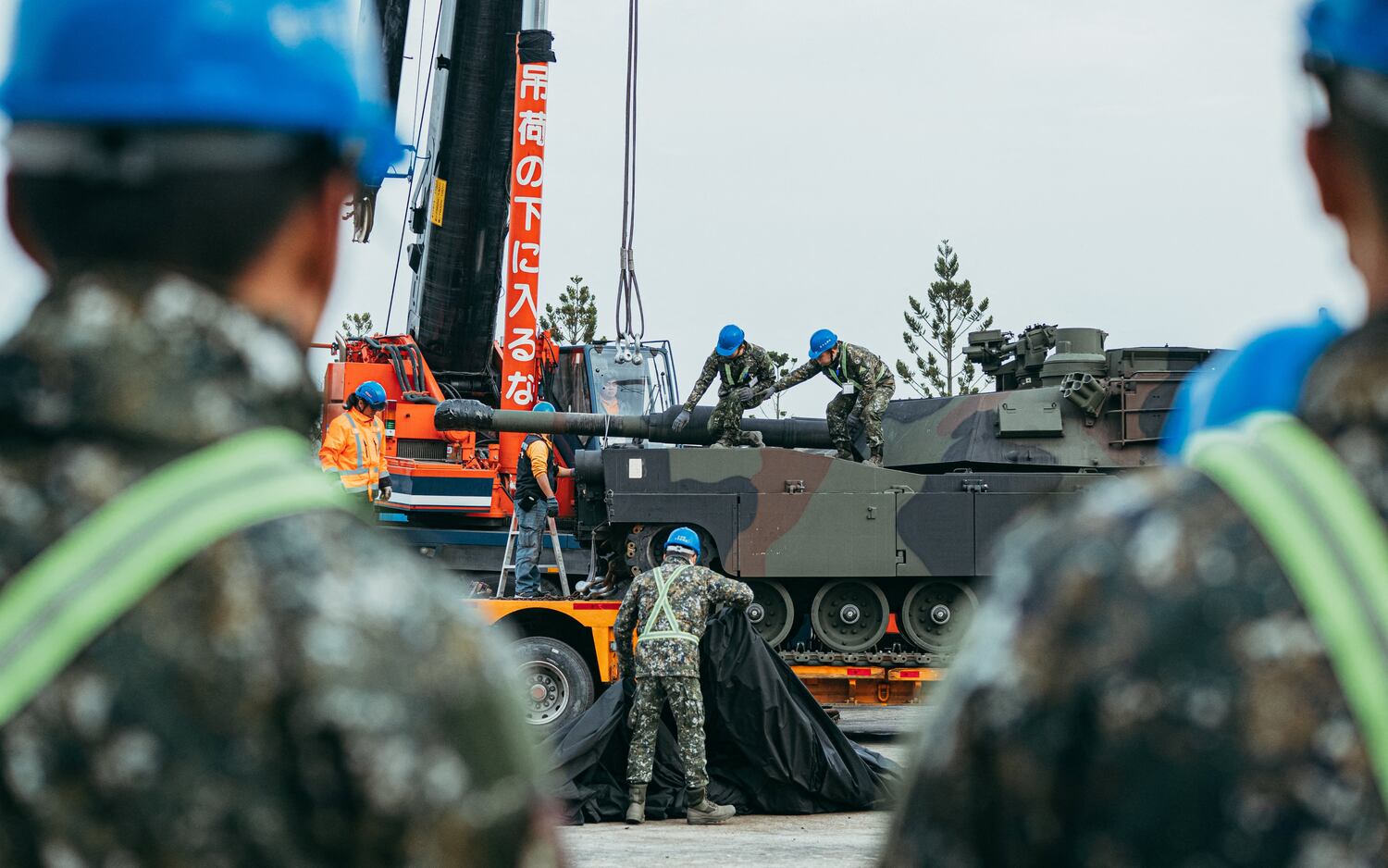TAIPEI, Taiwan – Taiwan has received 38 M1A2T tanks from the United States, the first U.S. tanks for the island in 23 years, and the first batch of an expected 122 due to arrive over the next two years.
While many defense experts rate the M1A2T as the world’s most advanced main battle tank, some also question whether it is suitable for Taiwan’s relatively confined, built-up spaces and its mountainous terrain.
Eric Gomez, senior fellow of Defense and Foreign Policy at Cato Institute, said in a news release that in the event of an invasion by China, its amphibious assault brigade may have light amphibious armored vehicles to help in the attack but it would not be supported by main tanks.
“The main task of the Abrams tanks in the Taiwanese army is to fight for those landing points and rely on strong firepower and armor to resist the landing troops,” said Gomez.
The M1A2 Abrams, a variant of the M1 Abrams produced by General Dynamics Land Systems, is considered one of the most advanced main battle tanks in the world. It is armed with 120-millimeter smoothbore guns capable of piercing armor up to 850 millimeters thick.
It can withstand shells fired by most other battle tanks and is faster than Taiwan’s existing tanks, U.S.-made M60A3s and indigenously developed CM11 tanks.
The M1A2T tank also features a “hunter-killer” capability, allowing it to track one target while simultaneously engaging another.

Lin Ying-yu, an assistant professor at Tamkang University’s Graduate Institute of International Affairs and Strategic Studies, told Taiwan’s Central News Agency that Taiwan’s M60A3s and CM11s tanks have been in use for 30 years and are unlikely to withstand China’s advanced anti-armor weapons.
Lin said the M1A2Ts would significantly enhance the island’s defensive capabilities but some experts have questioned the suitability of the M1A2T in Taiwan’s built-up and mountainous terrain.
‘Highly constrained’
Michael Hunzeker, associate director of the Center for Security Policy Studies at George Mason University, told Radio Free Asia that although the M1A2 is highly capable, its weight and size made it more suited to open terrain.
“Taiwan is highly urbanized, mountainous, and or covered in small roads and small bridges,” he said. “Thus, M1s are highly constrained in where they can go, which limits their utility and works against one of their main advantages: mobility and speed.”
The tanks also require extensive logistical support for fuel to keep its jet turbine engine running, and for maintenance, Hunzeker said.
“In essence, it’s not that the M1 is ‘bad’ per se,” said Hunzeker. “It’s that the M1 is a suboptimal allocation of Taiwan’s scarce defense dollars.”
Gomez added that the fuel consumption and maintenance issues were real but not insurmountable.
“The bigger danger related to the Abrams logistics requirements is the vulnerability of support facilities,” he said, adding that maintenance facilities and fuel may be vulnerable to China’s long-range strikes.
Ukraine, which has a variant of the Abrams, has more space to disperse its support facilities and reduce its exposure to Russian attacks, unlike Taiwan, Gomez said.
“Taiwan’s smaller size makes it harder to disperse its logistics facilities, though it could try hardening the facilities to make them more difficult to destroy,” he said.
“Tanks can still be effective, but they need to be supported by other forces that can protect them against things like helicopters and drones,” Gomez added.
RELATED STORIES
Taiwan to buy $2.2 bln of US weapons after Trump urged more spending
Taiwan wonders if Trump will charge ‘protection fees’
Taiwan ‘determined’ to protect its democratic way of life
China’s Ministry of Foreign Affairs, asked about the arrival of the U.S. tanks on the island that China claims as its territory, reaffirmed its opposition to U.S.-Taiwan military ties.
“The Taiwan authorities’ attempts to achieve independence through military reliance on external forces are doomed to fail. China will resolutely defend its national sovereignty, security, and territorial integrity,” said Lin Jian, a Chinese ministry spokesperson, on Monday.
The tanks delivered on Sunday are from a batch of 108 tanks and other items announced for Taiwan by then-U.S. President Donald Trump in 2019.
According to Taiwan’s Ministry of National Defense records, the island’s military is set to receive two more shipments of Abrams tanks, each consisting of 42 units, over the next two years.
Edited by Taejun Kang.
This content originally appeared on Radio Free Asia and was authored by Alan Lu for RFA.
This post was originally published on Radio Free.